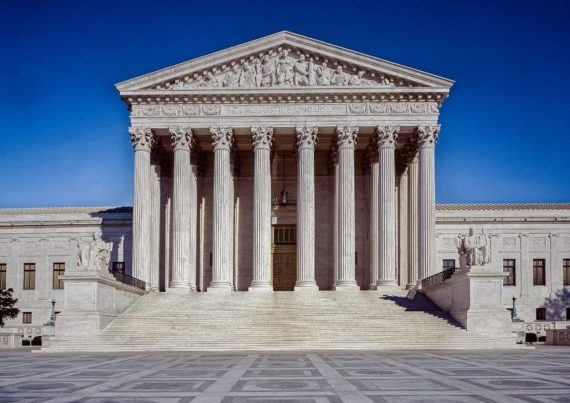A review of The Land They Loved, Vols. I and II (Shotwell Publishing, 2022, 2024).
Clyde N. Wilson, known rightly as the dean of southern historians today—the most learned, the most honest—has a marked literary bent, which he has turned to the service of his homeland. Under the collective title The Land They Loved, he has assembled two volumes of a Southern poetry anthology, with four more to come. Volume I, Southern Poets and Poems, 1606-1860, provides the beginnings of the long tradition and illustrates its flowering up to the War for Southern Independence. Volume II in the series, Confederate Poets and Poems (first volume), collects lyrical and narrative verse from the early years of that war. Volume III (that is, the second volume of Confederate writing) is ready for publication and will be out in 2025. The books are available in handsome hardback editions as well as paperback.
Faulkner said that the purpose of poetry was to “uplift man’s heart.”
Robert Penn Warren considered it the “extreme resource of language-knowledge, of language-being.” Professor Wilson, in his editor’s foreword to these anthologies, rightly observes that “poetry conveys a kind of truth not found in other forms of human discourse.” He then reminds readers of what William Gilmore Simms asserted: the “emotional literature” of a people must be taken into account for any full historical understanding. From the seventeenth century on, Southerners valued their poetry, preserved it, recited it in schools, parlors, and, as they went off to war in the 1800s, took books of verse in military kits. (Similarly, during the Great War many British officers carried with them onto the fields of France and the Lowlands Palgrave’s The Golden Treasury; historians have turned to it as well as to the poetry produced on the spot by participants in the conflict and survivors.)
In volume I, Professor Wilson casts a wide net, including brief prose statements that live in memory by Henry Lee on Washington (“First in war . . .”), Jefferson (his epitaph), and Travis (“Last Message from the Alamo”). Excepting a few figures about whom nothing is known, poets are introduced by short biographies. Lyrics to folk songs, a few still familiar, sound a popular note; the historical importance of William Walker’s Southern Harmony (1835), with more than two hundred songs, is underlined. Short passages in verse by figures known chiefly for other accomplishments add particular interest. Didn’t scores of people in every southern state write and read poetry?
“Ode to the Virginia Voyage” (1606), in honor of Raleigh’s project, by the English poet Michael Drayton, quite properly leads the list of Foundational poets in volume I, first section. In the second section, called “The Flourishing,” Dolley Madison, Francis Scott Key, and Edward Coote Pinkney are among the familiar names, and, of course, the lasting, insistent figure of Poe. Others are Mirabeau B. Lamar, Stephen Foster (for “My Old Kentucky Home”), Albert Pike, Francis Ticknor, William Timrod and his son Henry, and Simms.
Opening volume II, the first of the Confederacy and war volumes, “Dixie” and “The Bonnie Blue Flag” sound notes of devotion to the homeland and unyielding principles of governance: “For Southern Rights, hurrah!” The word freedom, a rallying cry, appears under many pens. This call is without irony, alluding, as it does, simply to the constitutional freedom of states except where it is explicitly (and narrowly) limited in the federal constitution. Pike, Simms, Ticknor, Henry Timrod, and additional poets included in the first anthology reappear, along with new figures, among whom are five women poets. Two “Choctaw Melodies” by Alexander Beaufort Meek are reminders of the southern indigenous tribes; one of these poems, “Atala’s Lament,” refers to the French writer Chateaubriand and his prose tales set in the Louisiana wilderness.
Throughout this volume, calls to arms resound; city names echo, including Richmond and Charleston; scenes of leaving for war, battle lines, and the sacrifice of good men are evoked in poem after poem. Simms’s “Battle Hymn” claims for the southern fighters the same justification, truth, and glory claimed by those on the other side. (As Charles Péguy wrote, before his death in 1914, “Happy those who have died for the carnal land / Provided it were in a just war.”) Wilson hails Timrod as superior to Union poets of the 1861-1865 conflict, including Whitman, so different from Timrod that they can scarcely be compared. (The latter’s “The Ode to the Confederate Dead,” the original one, preceding Allen Tate’s poem of nearly the same title, will be included in the next volume.) Lines by W. E. Henry and two other Englishmen, which conclude the volume, remind readers of Great Britain’s support for the South.
It should go without saying that, as shown by their prosody, rhetoric, and diction, the poets in these anthologies are of their time; isn’t nearly every poet? One notes the use of Thou and its verb forms along with thee, thy; apostrophes (as in “Ye that lift / The nation’s weapons”); the liberal use of exclamation points; the exclamatory Lo!; inversions of adjective and noun (“vision fair”) and particularly syntactic inversions (“Though a desolate thing is a fenceless farm . . . .” Repeated biblical references and frequent reliance on dramatic contrasts mark many pages. Sentimentality is nearly everywhere. As foolish readers may too readily assume, these features are not the signs of some imaginary “backward South.” The same prosody obtained among the New England poets; it is Tennyson’s and commonly that of other nineteenth-century poets on both continents; and it reaches well into the twentieth century.
These anthologies are treasuries; they belong in all southern libraries.







I’m sold. I’ll get a copy.
Beautiful books…completely uplifting.